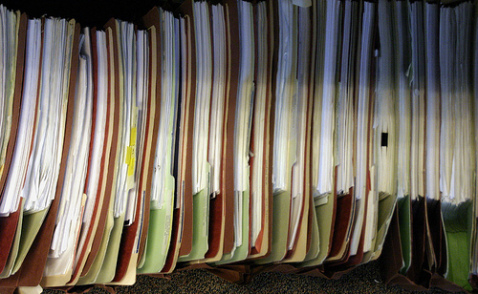Nitpicker
/I am a professional nitpicker. I sift through documents, link them up to one another, count them, summarise them. Before my daughter died, I’d spent nearly five years analysing other people’s sad stories, their deaths, hospital admissions and operations, reducing them to numbers to be crunched.
I treat them with more respect these days. Try to approach my computer with a bowed head and leave a little pause as a mark of respect before I attempt to weave these records into a palatable form. Because these documents, when viewed in their human context, tell some tragic stories. One of them is mine.
The strangest day of my life was comprehensively documented. Hospital records show my time of arrival in the accident and emergency department of the local hospital with back pain, the back pain that turned out to be premature labour. What should have been December instead one clear summer night in August.
The birth transcript from the next morning records the dates and times of my daughters' births. It looks like any other record, the hospital must spew out tens of these documents every day of the year. But the recorded birth weights cause something to catch in my throat.
There are a plethora of other documents, transfers to the NICU, treatments administered, the reactions of our daughters, our reactions. All meticulously noted down. Box files upon box files full of paperwork.
When I open my daughter's memory box, there seem to be two distinct categories amongst the contents. Little woollen hats, photographs of my hands stretched over her bruised little frame, photographs of her dead body cradled in the arms of my husband, her ashes.
And formal documentation. Birth and death certificates, medical records, the paperwork that I must pass on should I ever have her ashes interred.
Somewhere between these two imperfect, inadequate records sits my daughter's memory. All that is left of her is contained within that box.
I have retained the slip of paper that informs the registrar that a death has occurred. Signed by the doctor who witnessed her death and decided what caused it. I quite like to think of that quiet, gentle man bringing the whole power of his considerable intellect to bear upon that question. That just for a few minutes, perhaps, she filled his mind as he disentangled the chain of events culminating in her death. A tiny, icy comfort.
My husband and I had to take this small slip to the registry office. I remember driving there resentfully, sulkily, wishing that someone else could do this. Hardly believing that we were expected to. My introduction to the unrelenting world of parenthood a strange one but still one with an inescapable truth at its core, nobody else is going to do this for you, be your child living or dead. The buck stops here.
I sat in a chair over the desk from the registrar. I seemed to be able to view myself from the outside. I could see the registrar looking at a person who looked like me, who appeared to be holding things together but, in reality, I had been decanted somewhere to the right of myself, gibbering, trembling and translucent. I am certain that I was not the woman who sat in the chair and calmly handed over the slip of paper, the proof that her daughter had died.
 Photo by Zach K
Photo by Zach K
I remember that I wanted to sign for my dead daughter's birth certificate. But I couldn't bring myself to sign for her death certificate. My husband did that. He is listed as the informant on her death certificate. His qualifications for doing so listed as being her father and as being present at her death. Such dry little phrases concealing such a world of awfulness.
The registrar spelt one of the causes of her death incorrectly. I wanted to ask her to change it but I couldn't get the words out, they clotted in my mouth. Now the mis-spelling glares at me accusingly.
I left clutching those documents tightly in my hand, the only proof that I had not imagined her existence. Clinging to the sad, strange consolation that, should some great-great-grandchild go looking whilst researching their family tree, they would come across her.
Seven months after my daughter had passed away, a receptionist in some far flung part of the hospital ‘phoned me. To ask if I would be bringing the twins in for their hearing tests. For a moment, the room swirled around me and I saw my thin, ghost girl alive somewhere. In a hospital filing system. Preserved there. Squashed between files like a pressed flower. And part of me didn't want to tell the woman on the other end of the phone that she was dead. Because I would have liked to maintain the pretence and she was my only co-conspirator.
When my son was born, nearly three years later, my husband and I went to register his birth.
"Only one?" asked the registrar, "Are you sure you aren't hiding a twin anywhere?"
She probably says this to every family that comes through her door.
"No," I replied. "Just one."
But there is a hidden child in our family. She's been hiding for a long time now.
Did you have to complete any paperwork relating to the death of your child? Did it bring you any comfort or cause you further pain? Or did an absence of paperwork cause you hurt? Did you find any kind souls amidst all the bureaucracy? Or any callous ones? Have you had the disconcerting experience of someone in the 'system' contacting you assuming that your child was still alive?

